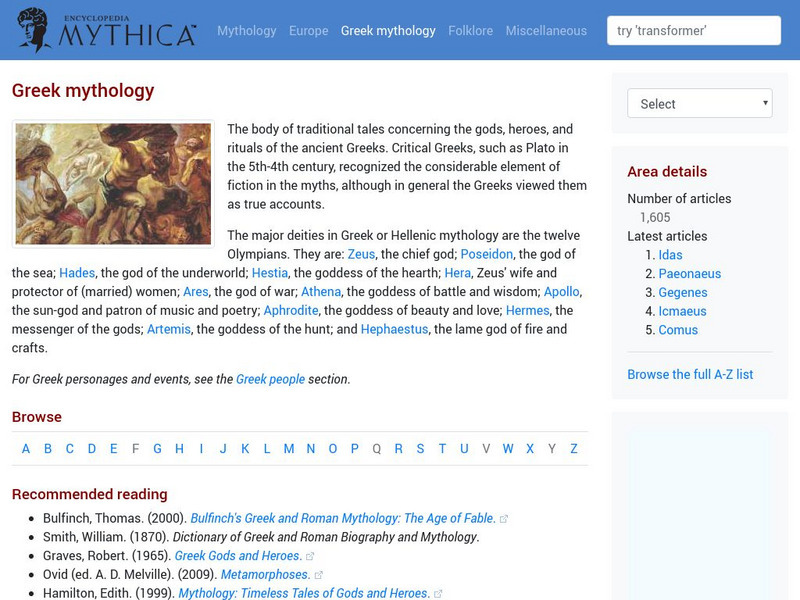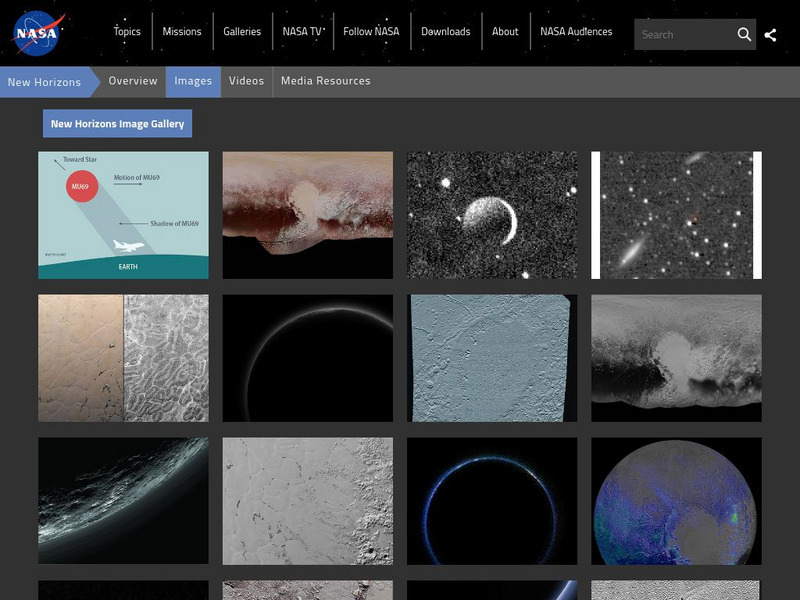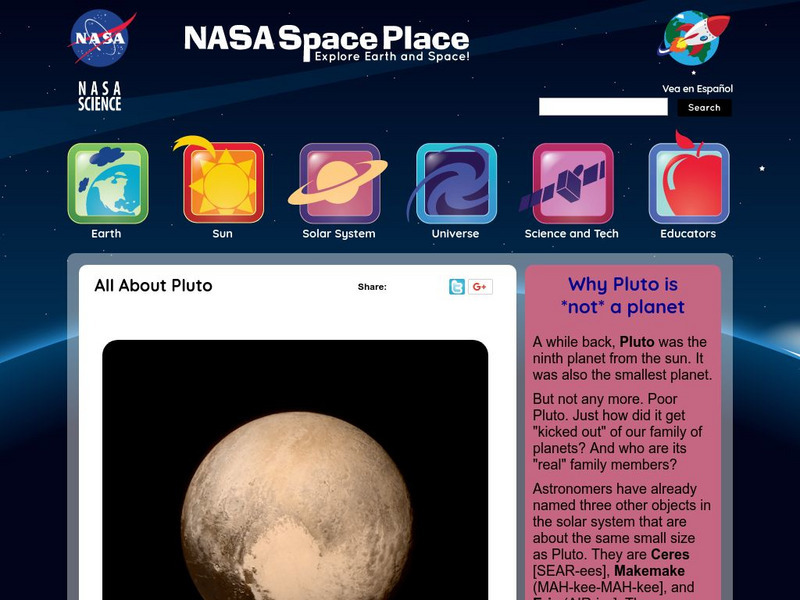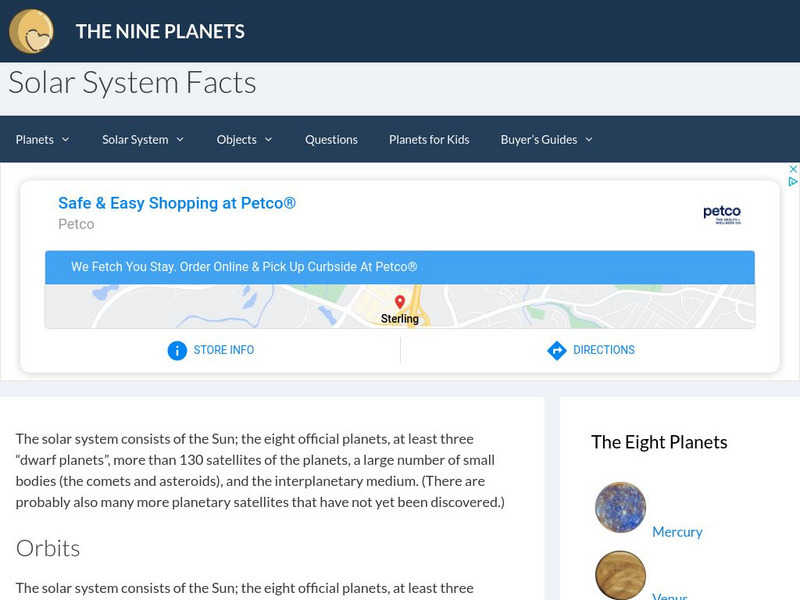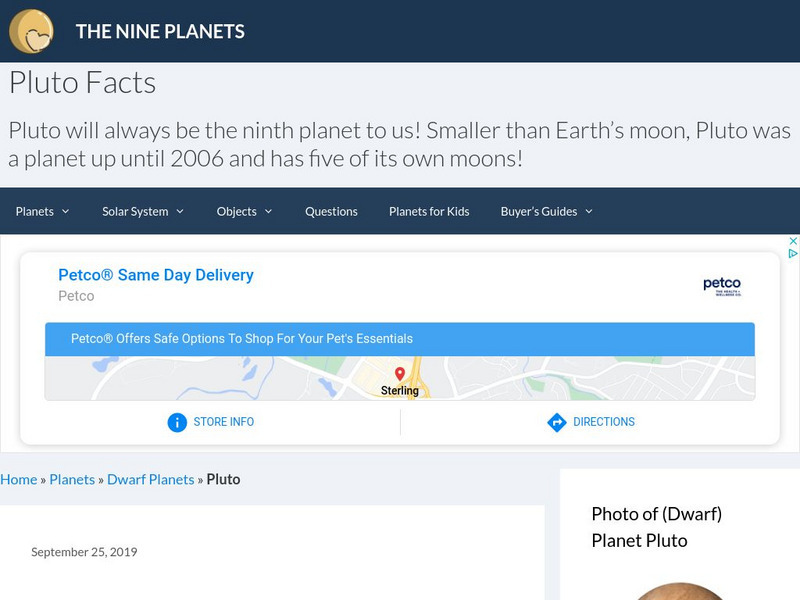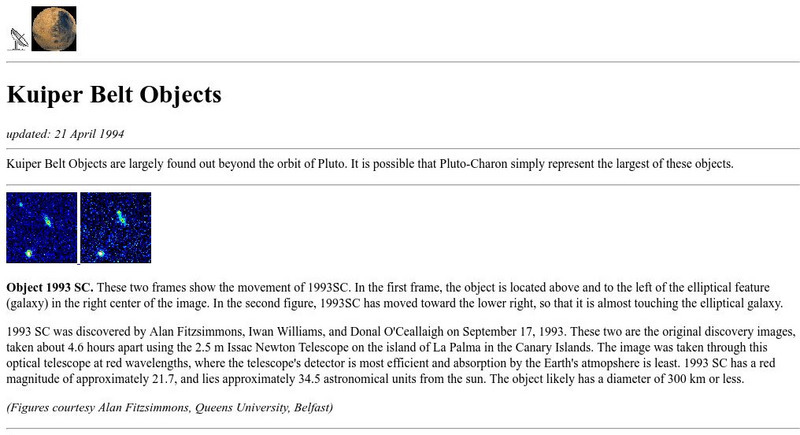Curated OER
Characteristics of the Outer Planets
A brief reading comprehension exercise, this worksheet covers the characteristics of the outer planets. It still considers Pluto a planet and Charon its moon. It is therefore a little out of date, but this fact can be discussed as part...
Curated OER
Solar System
In this space worksheet, students identify and locate vocabulary terms and names related to the Solar System. There are 23 words located in the puzzle.
PBS
Pbs Learning Media: Our Solar System Lithograph Set
View these amazing high-quality images of our solar system from NASA with this lithograph set. Each lithograph contains images, facts, dates, and general information on a particular subject. Background information and teaching tips are...
Encyclopedia Mythica
Encyclopedia Mythica: Greek Mythology
Encyclopedia Mythica offers a comprehensive resource on Greek mythology. Content includes a look at the principal gods, Zeus's consorts and offspring, the descendants of Prometheus, and much, much more. Click on "browse articles" for a...
NASA
Nasa: New Horizons Image Gallery
A collection of still and moving images from the New Horizon's space mission. Most of the images include descriptions and depict Pluto and its moon, Charon.
NASA
Nasa: The Space Place: Hail King of the Ice Dwarfs
This resource provides a nice overview of Pluto. Get information on Pluto's size, tilt, orbit and surface features. There is also a brief explanation of the "New Horizons" space probe.
NASA
Nasa's the Space Place: King of the Ice Dwarfs
An information page all about Pluto! Learn about Pluto's size, path around the sun, temperature, location, and traveling partner Charon.
Nine Planets
The Nine Planets: An Overview of the Solar System
A detailed overview of the history, mythology, and current scientific knowledge of each of the planets and moons in the solar system.
Nine Planets
The Nine Planets: Pluto
This site contains copious information about Pluto. The site contains descriptive and statistical information, as well as a detailed article about the search for trans-Plutonian planets and the "Nemesis" hypothesis.
Johns Hopkins University
New Horizons Website
This site from the Solar System Exploration section of NASA provides an overview of the space mission to Pluto, Charon, and the fringes of our Solar System. It describes the Kuiper Belt, and the objects involved with it, provided links...
Space Telescope Science Institute
Hubble Site: Solar System Images
A listing of clickable images of objects in the Solar System from the Hubble telescope that includes the following: Venus, Mars, Jupiter, Jupiter's satellites, Saturn, Saturn's rings and satellites, Uranus, Uranus' rings and satellites,...
Arizona State University
Mars Global Surveyor: Kuiper Belt Objects
This site describes the extended belt of small bodies residing just outside the orbit of Pluto, the Kuiper Belt.
University of Wisconsin
The Why Files: Infra Red Eye Special
A description of the ways in which infra-red is used in astronomy, including an extended example describing how infra-red was used to learn about Pluto's moon, Charon. There are also links to other sites of astronomical interest.
Wikimedia
Wikipedia: Pluto
Wikipedia, a publicly-maintained encyclopedia, provides an article on the dwarf planet, Pluto, including images, physical characteristics, history of its naming, the planet/dwarf planet debate, and more.
Curated OER
Nasa's the Space Place: New Horizons Mission
A photo of the New Horizons mission to visit Pluto, Charon, and the Kupier Belt.





